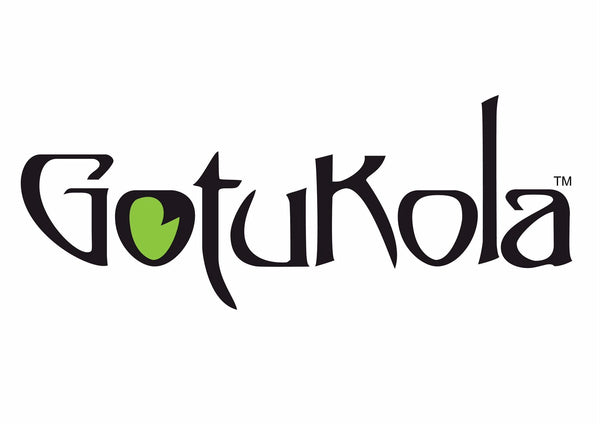Gotu kola, also known as Centella Asiatica, is a small perennial herb commonly used in traditional medicine for its potential cognitive and healing benefits. With its popularity in modern times, gotu kola has become one of the most widely used herbal supplements. However, little is known about its safety and long-term side effects. In this blog post, we will be exploring the potential side effects of gotu kola and what you need to know before taking it.
1. May cause gastrointestinal upset
Gotu kola may cause mild gastrointestinal upset, including diarrhea, stomach pain, and nausea. This is because some of the active compounds in the herb can irritate the lining of the stomach and intestines. To reduce the risk of experiencing these side effects, it's best to take gotu kola with food or drink.
2. Can interact with medications
Gotu kola may interact with certain medications, including blood-thinning medications, diuretics, and medication for diabetes. The herb can increase the effects of these medications, leading to adverse reactions. If you're taking any medications, it's important to speak to your doctor before taking gotu kola to avoid any potential interactions.
3. May cause skin allergies
Gotu kola is commonly used in skincare products due to its anti-inflammatory properties. However, some people may develop skin allergies or rashes from using these products. This is particularly true for those with sensitive skin. It's essential to do a patch test before using any gotu kola-based skincare products to avoid any allergic reactions.
4. May interact with alcohol
Drinking alcohol while taking gotu kola may increase the risk of adverse reactions such as dizziness, confusion, and excessive sleepiness. Therefore, it's best to avoid alcohol while taking gotu kola to reduce the risk of experiencing any unwanted side effects.
5. May cause liver damage
High doses of gotu kola may cause liver damage in some individuals. This is because the herb contains compounds that can be toxic to the liver at high doses. If you're taking gotu kola supplements, it's essential to stick to the recommended dosage and seek medical attention immediately if you experience any of the signs of liver damage, such as fatigue, jaundice, and abdominal pain.
As Traditional Medicine
Gotu Kola is an herb that has been used in traditional medicine for centuries. It is known for its potential health benefits, including potential nootropic effects, improved circulation, and support for healthy skin. Gotu Kola is often used as a dietary supplement in the form of capsules, powders, and liquid extracts, either alone or in combination with other herbs or nutrients.
Precaution
While Gotu Kola is believed to be safe when used in recommended doses, there are potential side effects that one may experience when taking dietary supplements that contain Gotu Kola. In this article, we will explore the possible side effects of Gotu Kola and provide recommendations on how to mitigate the risk of experiencing these side effects.
What is Gotu Kola?
Gotu Kola (Centella Asiatica) is a perennial herb that grows in tropical regions of Asia, Africa, and the Americas. It has been used in traditional medicine for centuries to treat a variety of health problems, including skin conditions, respiratory infections, and digestive issues.
Gotu Kola is rich in antioxidants and contains compounds called triterpenoids, which are believed to have anti-inflammatory, anti-anxiety, and potential nootropic effects. Some research has suggested that Gotu Kola may also have neuroprotective properties, helping to protect the brain from damage caused by free radicals and aging.
How is Gotu Kola used?
Gotu Kola is commonly used as a dietary supplement, either alone or in combination with other herbs or nutrients. It is available in various forms, including capsules, powders, and liquid extracts.
The recommended dose of Gotu Kola varies depending on the product and the individual's health status. It is always important to read the label carefully and follow the instructions provided by the manufacturer or healthcare professional.
Common Side Effects of Gotu Kola
While Gotu Kola is generally considered safe at recommended doses, there are some potential side effects that one may experience when taking dietary supplements that contain Gotu Kola. Here are some of the most common side effects.
6. Skin irritation -
When used topically, Gotu Kola can cause skin irritation or an allergic reaction. It is always important to perform a patch test before using any new skincare product that contains Gotu Kola.
7. Headache
Some people may experience headaches or dizziness when taking Gotu Kola. If these symptoms persist, it is recommended to stop taking Gotu Kola and consult a healthcare professional.
8. Increased blood sugar
Gotu Kola may increase blood sugar levels, making it important for people with diabetes to monitor their blood sugar levels regularly.
9. Pregnancy and Breastfeeding
Gotu Kola is not recommended for pregnant or breastfeeding women as there is limited research on its safety in these populations.
10. Interactions with medication
Gotu Kola may interact with certain medications, including blood thinners, sedatives, and medications for high cholesterol. If you are taking any medication, it is recommended to talk to your healthcare professional before taking Gotu Kola.
Symptoms and Severity of Gotu Kola Side Effects
The severity of the side effects associated with Gotu Kola varies from person to person. Some people may experience mild stomach upset, skin irritation, or headaches, while others may experience more severe symptoms.
In rare cases, high doses of Gotu Kola may cause liver damage or other serious health problems. It is always important to speak with a healthcare professional before taking high doses of Gotu Kola or any other herbal supplement.
Complications and Long-Term Effects
While there is limited research on the long-term effects of taking Gotu Kola, some studies have suggested that it may have liver-protective effects. However, more research is needed to fully understand the potential long-term effects of Gotu Kola use.
It is important to keep in mind that taking high doses of Gotu Kola or any other dietary supplement for an extended period of time may increase the risk of side effects and complications. It is always recommended to follow the recommended dose and speak with a healthcare professional before starting any new supplement regimen.
Recommendations and Precautions
To minimize the risk of side effects when taking dietary supplements that contain Gotu Kola, it is recommended to:
- Read the label carefully and follow the recommended dose provided by the manufacturer or healthcare professional.
- Take Gotu Kola with food to prevent stomach upset.
- Perform a patch test before using any new skincare product that contains Gotu Kola.
- Monitor blood sugar levels regularly if you have diabetes.
- Speak with a healthcare professional before taking Gotu Kola or any other herbal supplement if you are pregnant, breastfeeding, or taking medication.
Conclusion
Overall, gotu kola may have some side effects that are concerning, but in general, this medicinal herb is safe to consume. Proper dosing is very important to avoid potential safety issues and if you experience any strange effects while taking it, go ahead and discontinue use.
Nevertheless, gotu kola has many benefits that make it potentially worth incorporating into your daily routine. For best results seek advice from a qualified healthcare professional before beginning any supplement regimen. Remember that although it can be helpful, no supplement or natural remedy is risk-free so always proceed with caution and heed all precautionary warnings for your own well-being. This ancient herb has been used for centuries in traditional Chinese medicine practice with good outcomes - who knows what kind of insight utilizing this herb could bring about for modern times!
Check out for more interesting topics about Gotukola @gotukola.

